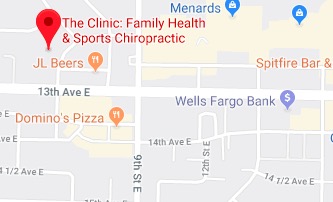 Sleep is a recurring condition of the body in which there is a suspension of voluntary movements, the eyes close, and the muscles relax. Growth and rejuvenation occur in many bodily systems including immune, nervous, skeletal and muscular. It is not a complete shutdown; metabolism, brainwaves, hormones and psychological events continue even when in sleep. There are 5 phases of sleep with different events happening at each stage and they are all important. Because of each of their importance interruption at any stage has different consequences. Sleep loss shows symptoms of nervous system fatigue, diminished intellectual capacity and emotional fragility affecting immunity, diet, metabolism and libido.
Sleep is a recurring condition of the body in which there is a suspension of voluntary movements, the eyes close, and the muscles relax. Growth and rejuvenation occur in many bodily systems including immune, nervous, skeletal and muscular. It is not a complete shutdown; metabolism, brainwaves, hormones and psychological events continue even when in sleep. There are 5 phases of sleep with different events happening at each stage and they are all important. Because of each of their importance interruption at any stage has different consequences. Sleep loss shows symptoms of nervous system fatigue, diminished intellectual capacity and emotional fragility affecting immunity, diet, metabolism and libido.
It is believed that movements are practiced in sleep. There is no motor movement while sleeping and therefore safe for the brain to practice movements without the threat of physical injury. This practice time is used to create the neurological pathways necessary to accomplish the movement when awake. That is why we sleep more when we are children, there is more to learn (talking, walking) and practice is needed. As we age we sleep less, there are less new movements to learn, walking and talking is second nature. Applying this same idea to an athlete learning a new skill, complex movements beyond the normal range can be practiced while sleeping, especially those with high risk of injury to the body such as the balance beam in gymnastics. Also consider an adult having to relearn lost skills, such as a stroke survivor or a post-concussion sufferer.
Age group Recommended hours of sleep
Newborn 16-18
1-12 months 14-18
1-3 years 12-14
3-5 years 11-13
5-12 years 9-11
Adolescence 8-10
Adults 7-9
Pregnant women 9+
Medications prescribed such as dopamine enhancing and benzodiazepines target specific sections of the sleep cycle but these medications come with well-known side effects. Supplementation with melatonin and magnesium/calcium are also common treatment methods targeting specific deficiencies contributing to sleep loss and these come with minimal side effects.
Acupuncture uses needles to affect specific channels of energy within the body that are responsible for physical, mental and emotional processes including sleep. Determining which channels’ abnormal energy is affecting one’s sleep is the art and science of acupuncture. Difficulty falling asleep versus not being able to stay asleep are different channels of energy. Calm insomnia characterized by being able to read a book in bed verses anxious insomnia characterized by racing thoughts or restless leg syndrome are also different channels of energy.
Seemingly unrelated symptoms such as worry, anxiety, grief, hunger, head congestion, snoring, sleep apnea, nightmares and terrors, grinding teeth, shoulder and neck tension, difficult morning bowel movements, night sweating and hot flashes, calf cramps, dry mouth, bedwetting, itching head, drooling and crusting around the eyes all give clues to which channel of energy is affected and should be treated.
When considering treatment, any medication or supplement changes should be discussed with your doctor. When considering acupuncture to treat insomnia, speak with your acupuncturist to determine if it is the right course of action.


